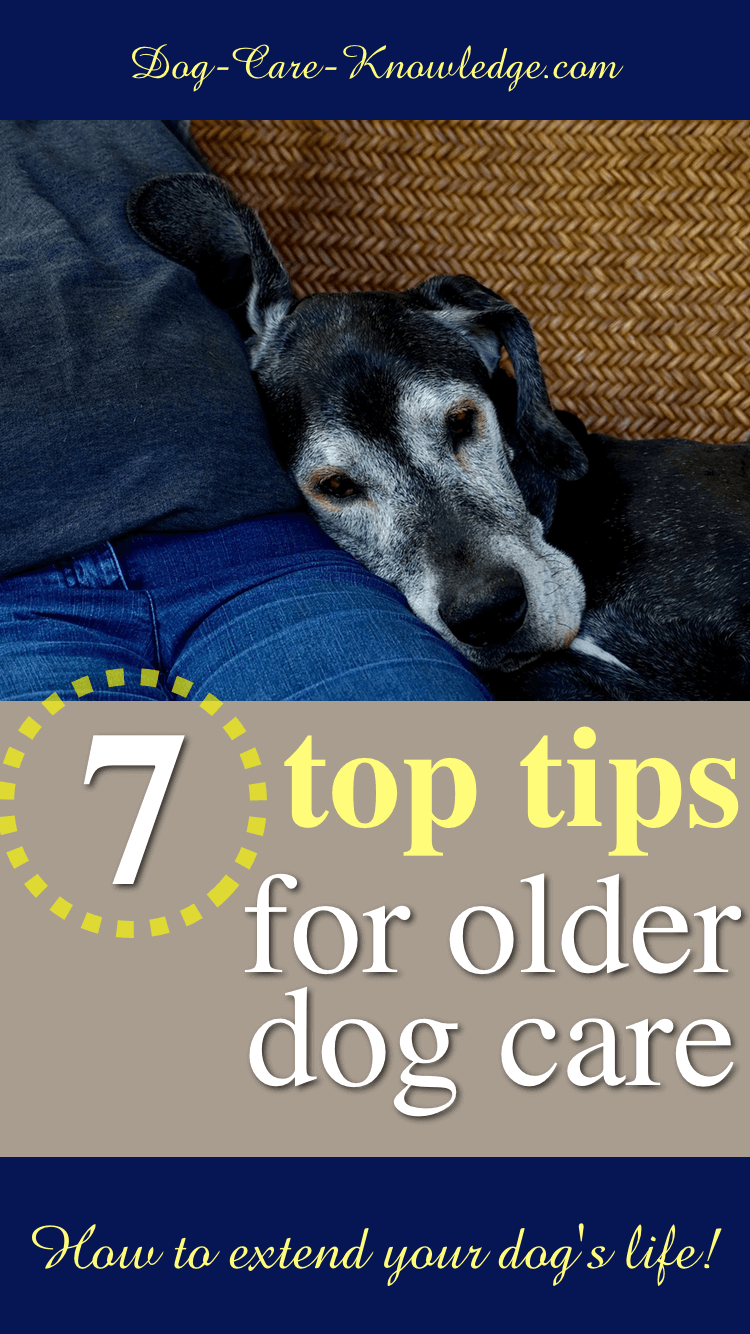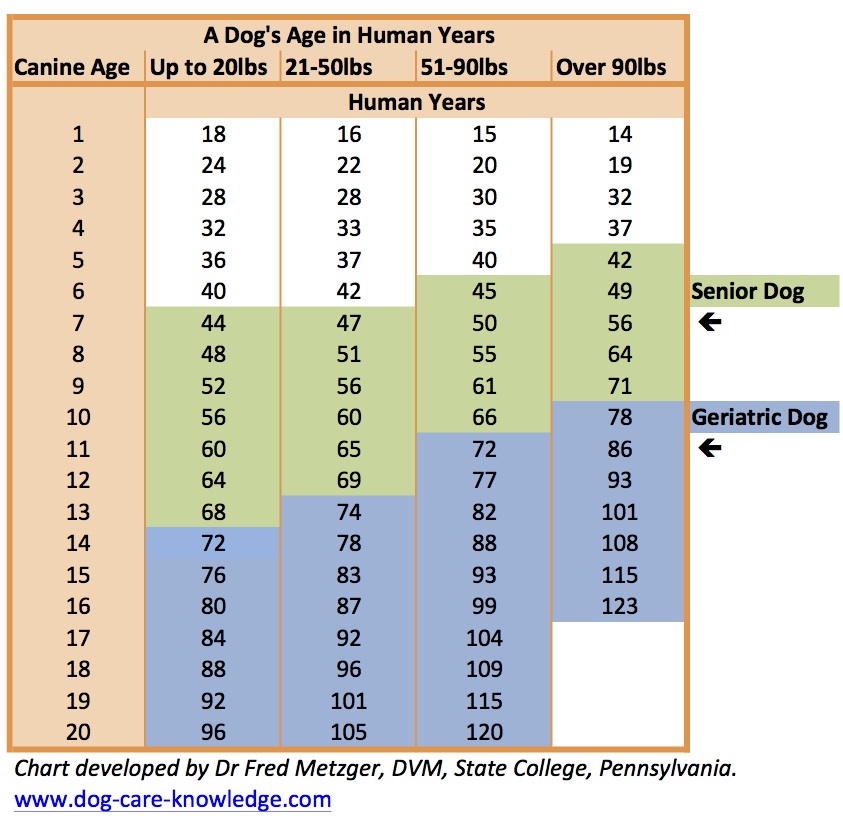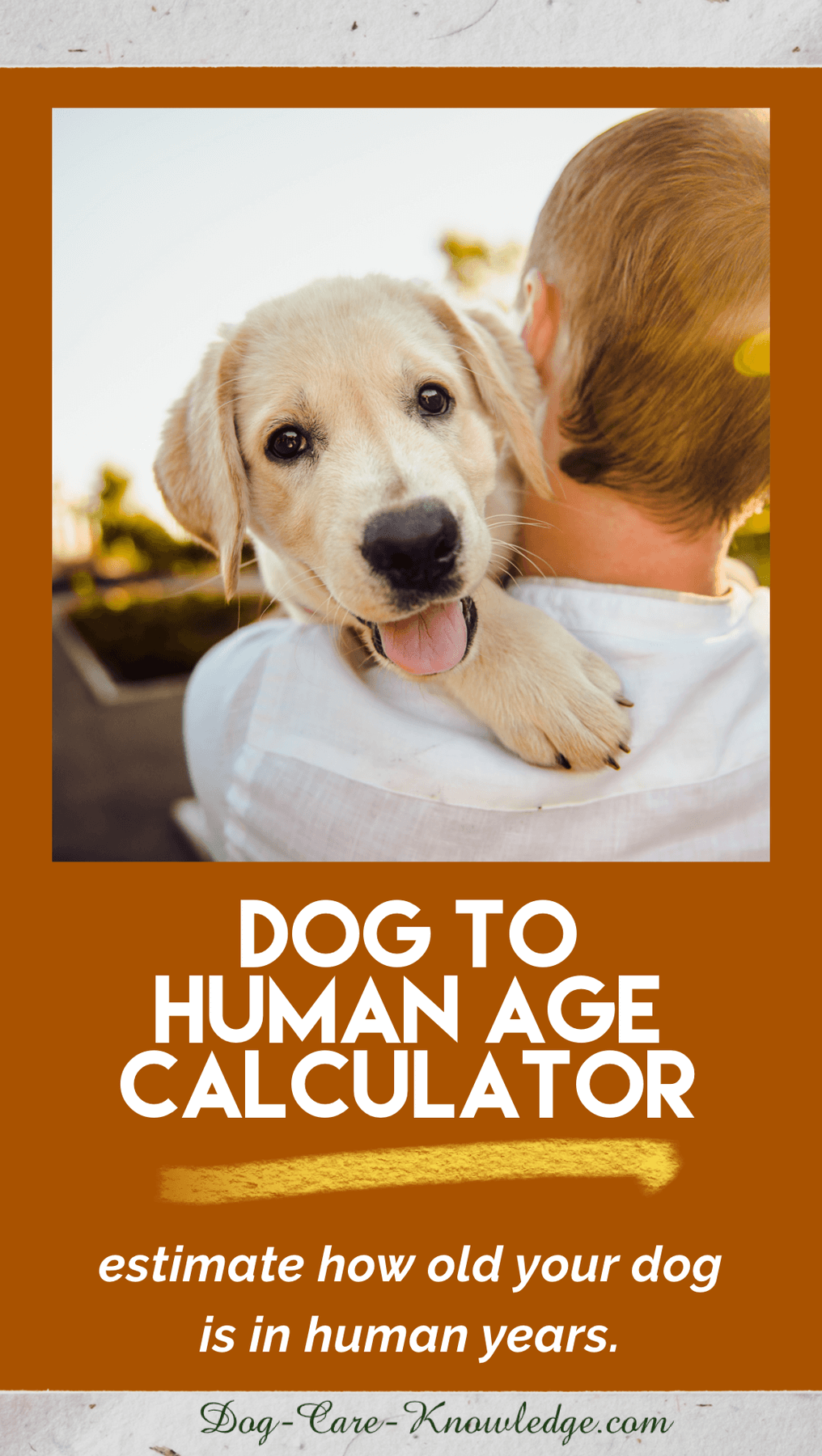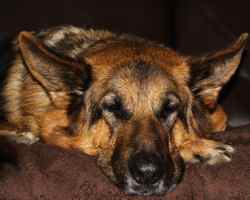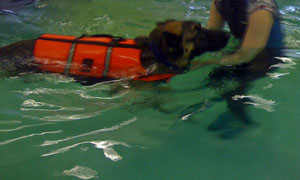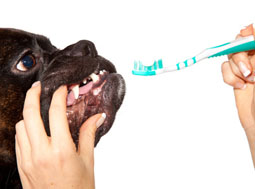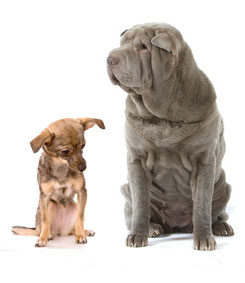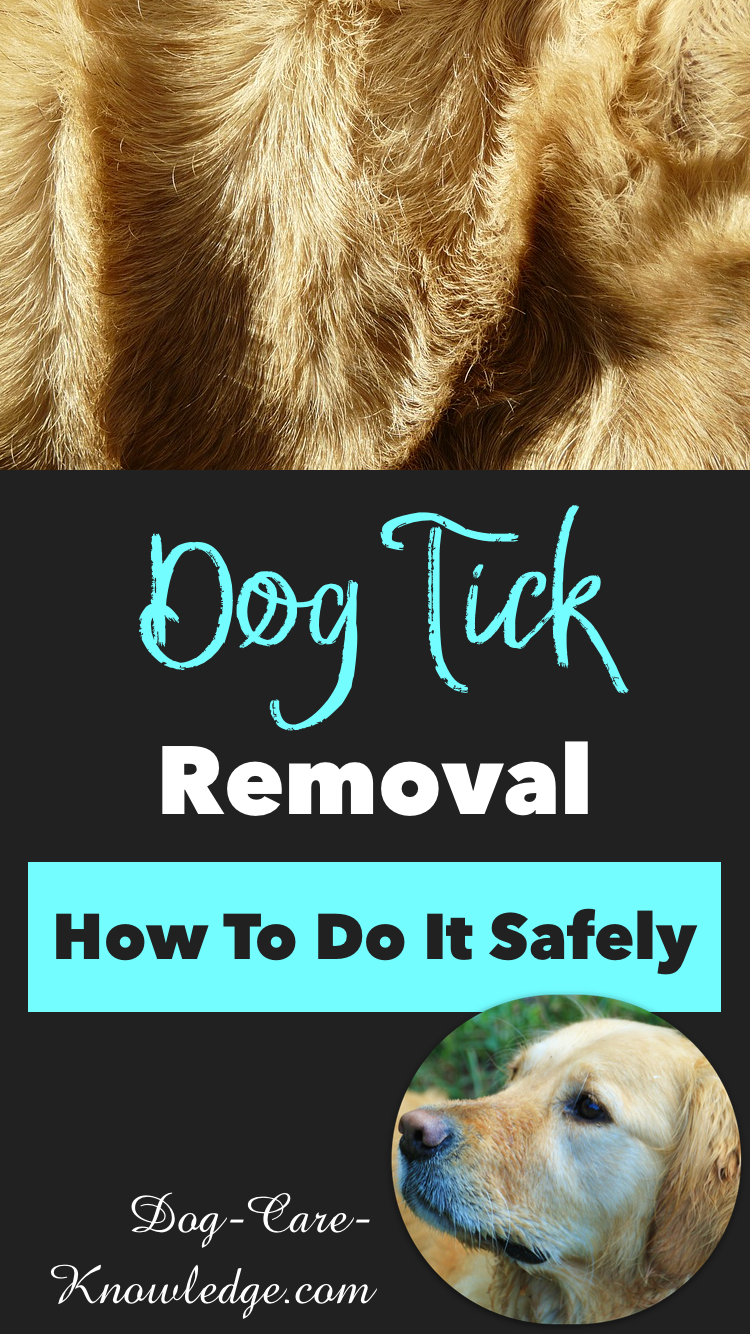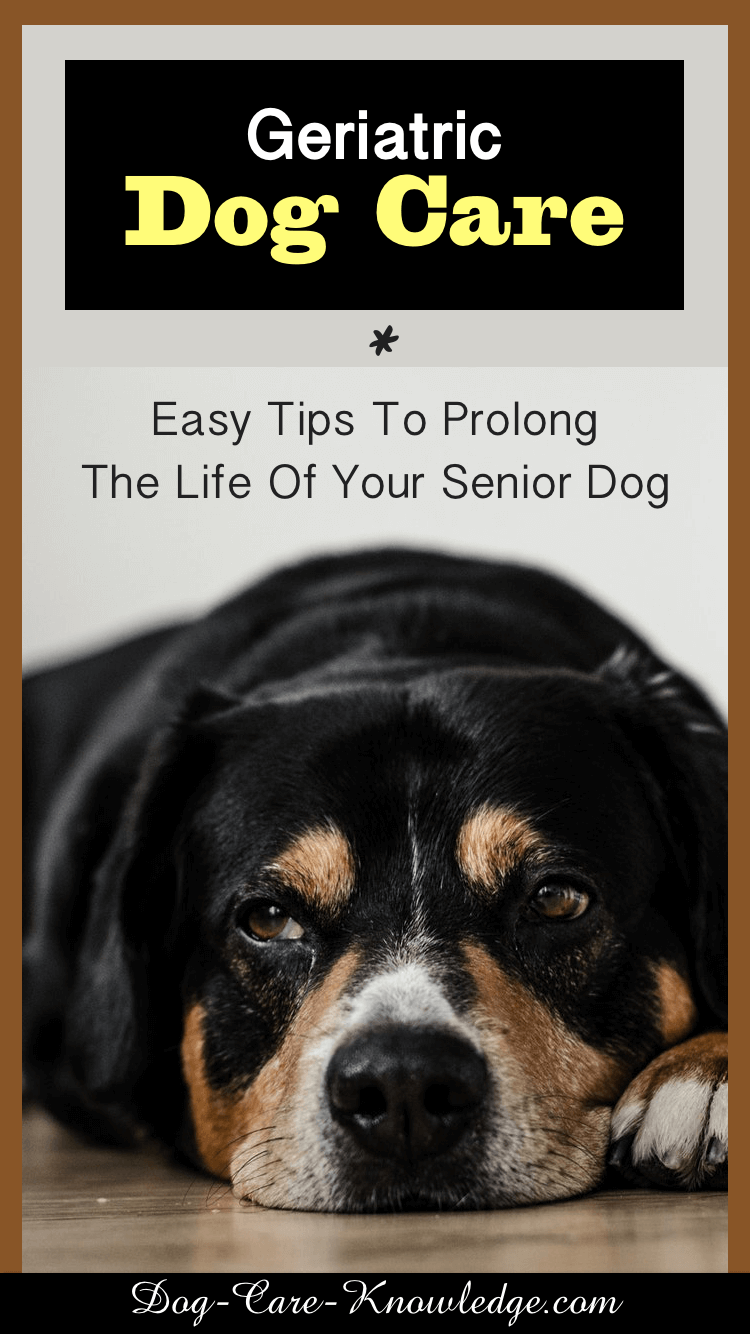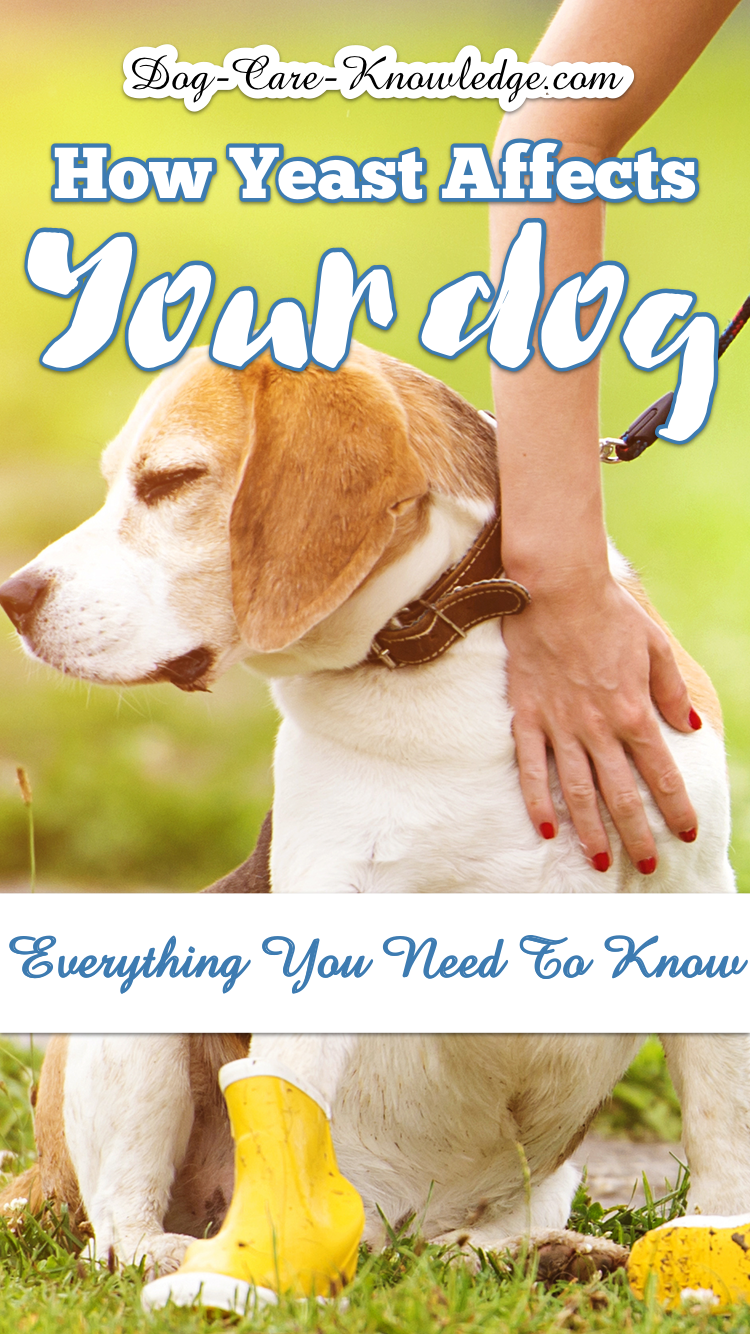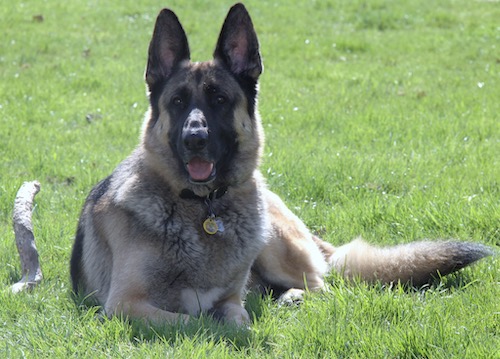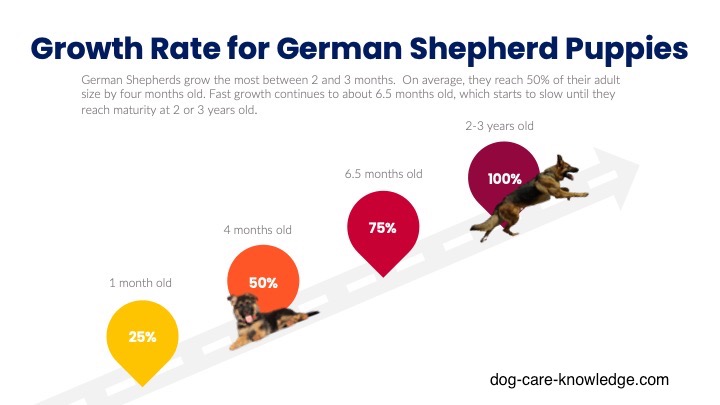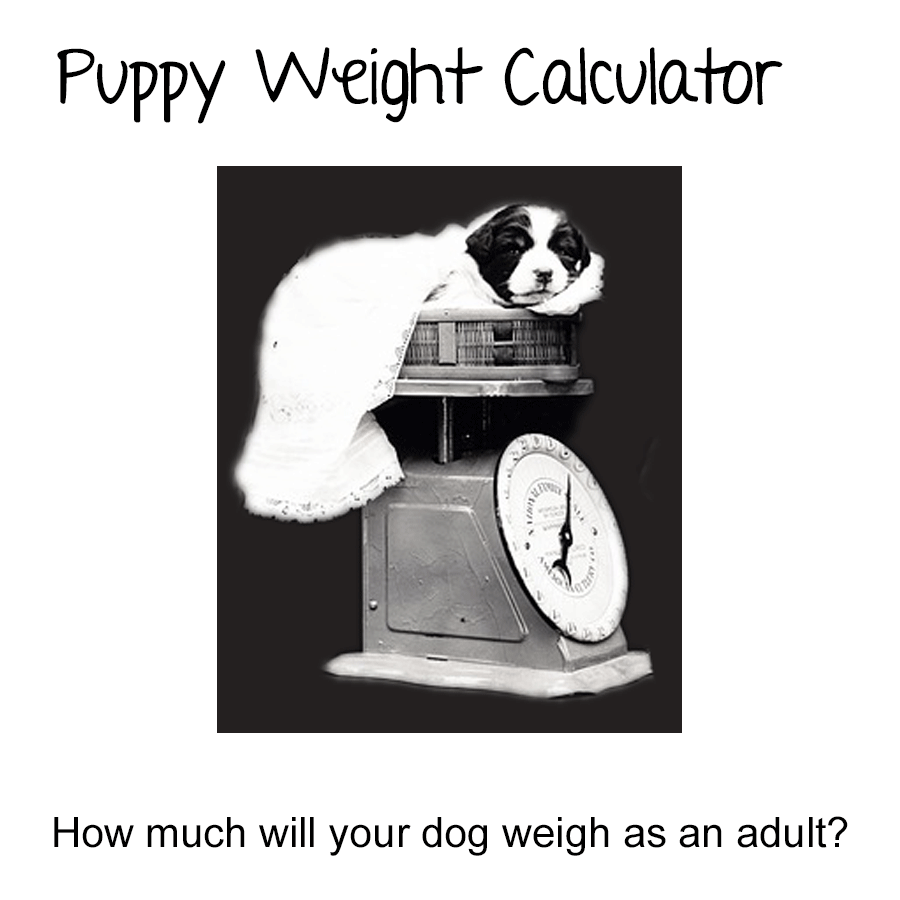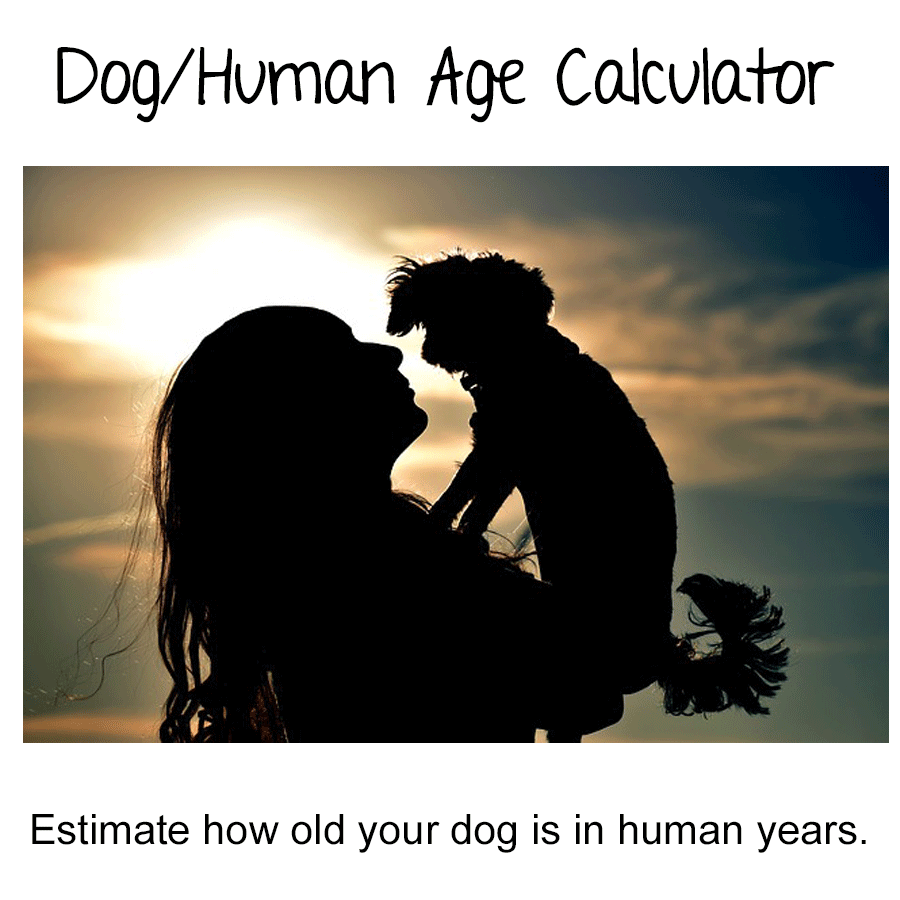- Home
- Dog Care Tips
- Older Dog Care
Older Dog Care: Top 7 Tips
A good routine for older dog care can prolong the life of your senior dog. Unfortunately, many health problems start when dogs become older. Even the most healthiest dog can start to have health issues once they reach their senior year.
Therefore, it's important to know what to look out for, what preventative steps you can take, as well as how you can protect their joints, teeth, skin and coat. Let's not forget how we can help them maintain the integrity of their mental faculties and senses.
Not sure if your dog is a senior? Check our chart below to see when dog's reach their senior years. Also, you can use our interactive calculator to estimate how old your dog is in human years.
Older Dog Care Routine - When To Start?
Chart of Dog's Senior and Geriatric Years
If you're not sure when you should be starting a specific dog care routine for an older dog then you can check on this chart to see when your pup becomes a senior. It's at that point that you need to focus a little more closely on his health.
It used to be that dogs age 7 years for every one of ours, however, that has since been updated as bigger dogs age more rapidly so a dog's age in human years is more accurately based on your dog's weight.
Dog Age to Human Age Calculator
Use the below calculator to determine how old your pooch is in human years, based on their current age and weight.
Simply choose their size (small, medium or large), enter their current age, and the calculator will show how old your pup is in human years.
|
See Geriatric Dog Care for information on specific medical tests for age-related diseases in dogs, and the crucial warning signs that you need to look out for. |
Including preventative steps as part of an older dog care routine can prolong the life of your senior dog. Just by knowing the symptoms and employing some simple steps into your routine you can slow the progression of common conditions in older dogs.
1) Older Dog Care Diet

One of the most important things to do for older dog care, is to ensure your dog maintains a healthy weight. An overweight dog will have many more health problems than a dog that is kept lean or at his ideal weight.
As dogs age they become less active and will require fewer calories than a more active younger dog. This doesn't mean that you automatically need to switch to a senior diet but you do need to keep an eye on his weight and switch to a high fiber or reduced-calorie diet if necessary.
One thing I noticed with Hudson (my German Shepherd) is that he became hungrier as he got older. As a young dog it was difficult to get him to eat his dinner (fairly typical with Shepherds) but once he turned about five, his appetite seemed to increase.
Now, he'll eat almost anything so I have to keep a close eye on him. Especially as I have a younger dog (Ava) who is now the picky one that doesn't eat all her food. At dinner times I have to be "on guard" as he'll steal her food and she will happily let him, luckily I won't!
So, as I said, keep an eye on weight.
2) Older Dog Care - Joints and Mobility
As dogs age they are likely to suffer from stiff joints and loss of muscle tone and strength. Unfortunately arthritis is extremely common in senior dogs and progresses over time. Approximately 20% of dogs are affected with arthritis. Symptoms to watch out for are:
- Reluctance to walking, climbing, jumping, running or climbing stairs
- Lagging behind on walks
- Low activity
- Limping, especially upon waking (this may only be for the first few seconds)
- Sluggishness or tiredness
- Reluctance to extend rear legs
- Soreness
- Aggressive, withdrawn behavior, or other changes in behavior
If you notice any of these symptoms, take your dog to your vet to get a firm diagnosis. There are many medications and supplements your vet can provide or recommend to reduce inflammation and pain as well as slow the progression of the disease. One of the best supplements for joints and mobility is salmon oil.
It's all natural and can help with a wide range of conditions found in older dogs such as:
- skin and coat
- joint function
- inflammation
- fights heart disease
- natural cancer fighting agent
There are also a number of things you can do as part of your older dog care routine to help with these issues.
Take your dog for regular, short walks and limit the amount of running your dog does. Walking is much better than running for joints and muscle tone and swimming is even better.
Swimming is an excellent exercise if your dog loves the water. Nowadays, there are many hydrotherapy centers for dogs which will have qualified staff to teach your dog to swim and monitor their exercise levels and muscle tone.
That's great for water loving dogs but mine (Hudson) is definitely not one of those and hated his swimming lessons.
If your dog isn't keen on swimming (like Hudson), then you could try the other form of hydrotherapy which is basically a treadmill under water. This is excellent exercise and again is monitored by a trained hydrotherapist. Hudson hated the swimming but seemed to like (or at least accept) the treadmill hydrotherapy.
If you have pet insurance, check with your insurance provider as costs may be covered by your plan.
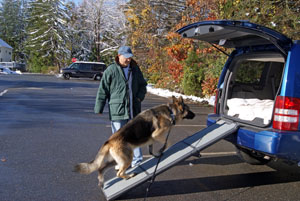
Ramps are also a great tool to slow the progression of arthritis.
Repeatedly jumping (i.e. in/out of cars or on high furniture) will cause stress to the joints and aggravate or accelerate arthritis.
Teach your senior dog to go up/down a ramp and keep one in your car.
There are many joint supplements for your dogs. I use Dasuqin which has Glucosamine and Chondroitin with MSM. Your vet can recommend the best one for your dog, My vet recommended the Dasuquin for Hudson). A little tip here, I used to get them from my vets but found the exact same supplement online for almost half the price.
3) Older Dog Care - Dental Care
The biggest risk factor with canine dental problems is that your dog will require anesthetic to carry out any dental work. Which isn't great. Apart from it being expensive, the older the dog, the more riskier putting them under anesthesia is. If your dog already suffers from kidney, liver, lung, or hearth disease, the risk is increased.
Your vet will be able to carry out pre-surgery blood-work to determine the safest drug to use for your older dog. Luckily dental disease is very preventable in dogs by ensuring that good dental care is maintained throughout your dog's life.
|
Clean your dog's teeth regularly to reduce the risk of tooth decay and gum disease. If your dog doesn't tolerate a toothbrush then you can try a medicated oral gel or approved dental sticks. |
4) Older Dog Care - Skin/Coat Problems
As dogs age their oil-producing skin glands no longer work as efficiently as they did when they were younger. That's why you are much more likely to see skin and coat problems such as hot spots, sores, hair matting, and dry and scaly skin.
|
See here for more advice on caring for your dog's skin/coat. Skin tumors are also common in older dogs and any lumps or bumps need to be checked by your vet. Don't forget to check under the belly and, yes, you are even going to have to check the rectum and genitals! |
By regularly brushing and grooming your dog, you will be able to keep their skin and coat in good condition and also notice any skin tumors early. If your dog gets stressed or uncomfortable during the grooming session then you may have to do this in a few short sessions or maybe even consider having your dog clipped.
5) Older Dog Care - The Senses

As with humans, a dog's sense of hearing and vision will usually deteriorate as they age. Dogs are usually quite good at compensating for the loss of a sense by relying on their other senses.
You may not even notice a dog with a reduced sense of hearing, as they will frequently rely on their sense of smell which is much more reliable to them. Older dogs very rarely lose their hearing completely and can usually still pick up a clap or whistle. A dog that is experiencing loss of hearing may be harder to wake so don't startle him by touching him to wake him up, banging your feet on the ground near him is a much more effective and safe way of waking a dog with hearing loss as they can feel the vibrations.
An older dog may also experience loss of sight as they too can get cataracts, retinal disease, glaucoma and uveitis. If your older dog does lose his sight it is important that you do not move the furniture around as they have a "mental map" of where things are and can quite easily get around using their other senses to guide them.
6) Older Dog Care - Mental Faculties
Believe it or not, dogs can get a similar condition to Alzheimer's Disease called Cognitive Dysfunction Syndrome. If you notice a decline in your dog's mental faculties, such as; his recognition, memory, thinking, and learned behavior, he may be suffering from this condition.
Dogs with Cognitive Dysfunction Syndrome will experience one or more symptoms with the pattern generally being that it escalates as they age. The most common indication that a dog is suffering from this disease is disorientation.
Your dog may appear to be lost in his own home or yard, have difficultly getting out of a corners or behind furniture, or gets confused at doors. You may notice that your dog goes to the wrong location to go out or tries to go through a door via the hinge side instead of the opening. He may also begin to not recognize familiar people or stops responding to verbal cues or trained commands.
If you notice any of these symptoms at all get your dog to the vets as soon as possible as there options available that can dramatically improve symptoms and prolong the quality of your dog's life. It is a progressive disease usually affecting dogs over the age of 10.
7) Older Dog Care Vet Visits Twice a Year
Finally, each dog is different and unique. These aliments are the most common conditions that affect older dogs, of course, there are tons more. One of the most beneficial things you can do for your older dog is to increase your regular checkups with your veterinarian to twice a year and ask for specific age related tests and exams.
Many owners are managing and dealing with all sorts of conditions and situations related to old age in dogs and are doing so wonderfully.
Dog parents that have an older dog tend to have a wealth of experience that proves to be invaluable to the inexperienced or new dog owner.
If you have an older dog, we'd love to hear your story, experiences, or tips here.
Have a Great Tip on Geriatric Dog Care?
Do you have an older dog in your life? Share your story, experience or tip about the geriatric dog that you love!
What Other Visitors Have Said
Click below to see contributions from other visitors to this page.
Geriatric Dog Care Tips - Auto-immune Disorder. 




Geriatric Dog with Auto-immune Disorder - Fur Baby Love.
Jill is my 78 year young geriatric baby, she has just been diagnosed with auto-immune disorder …
